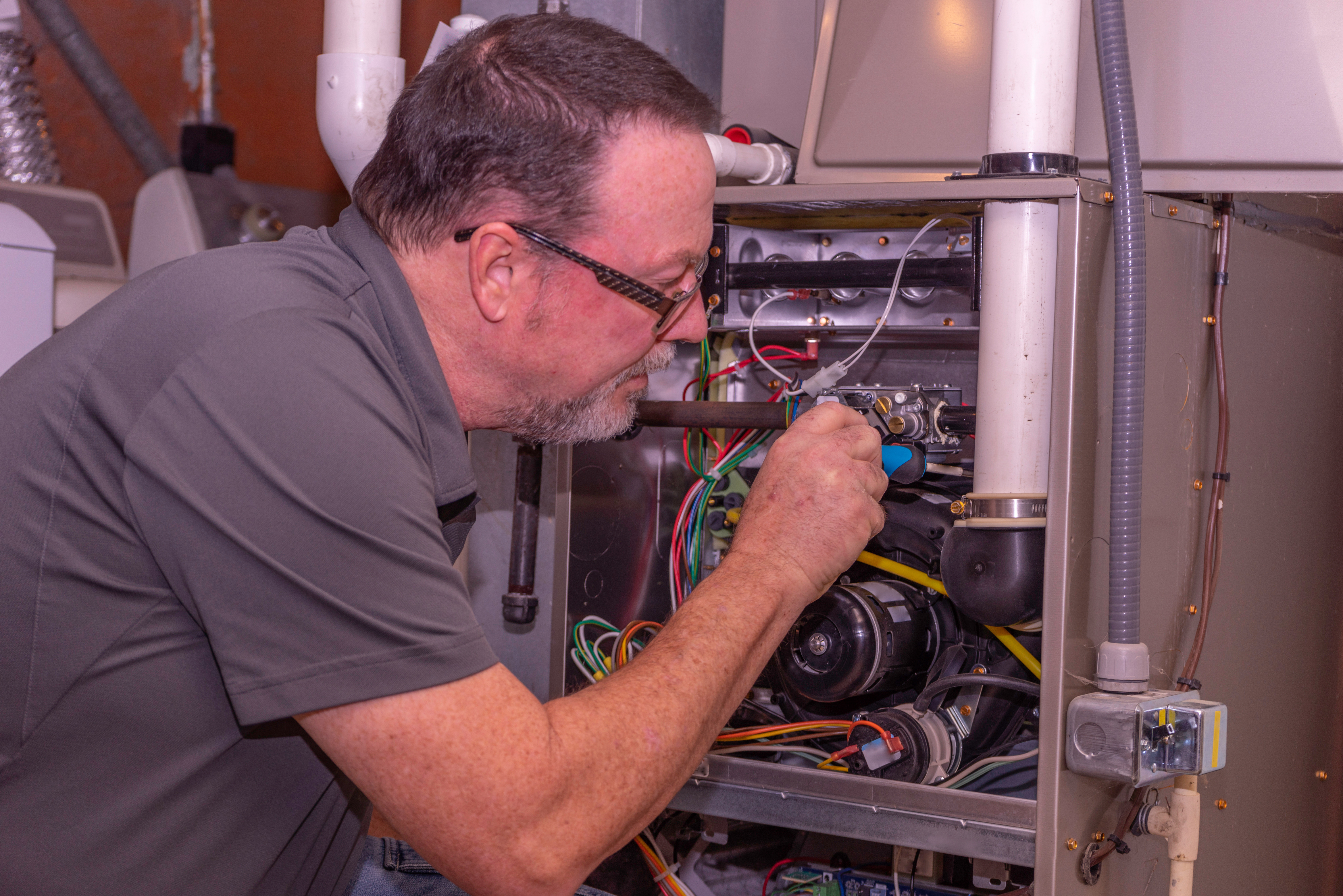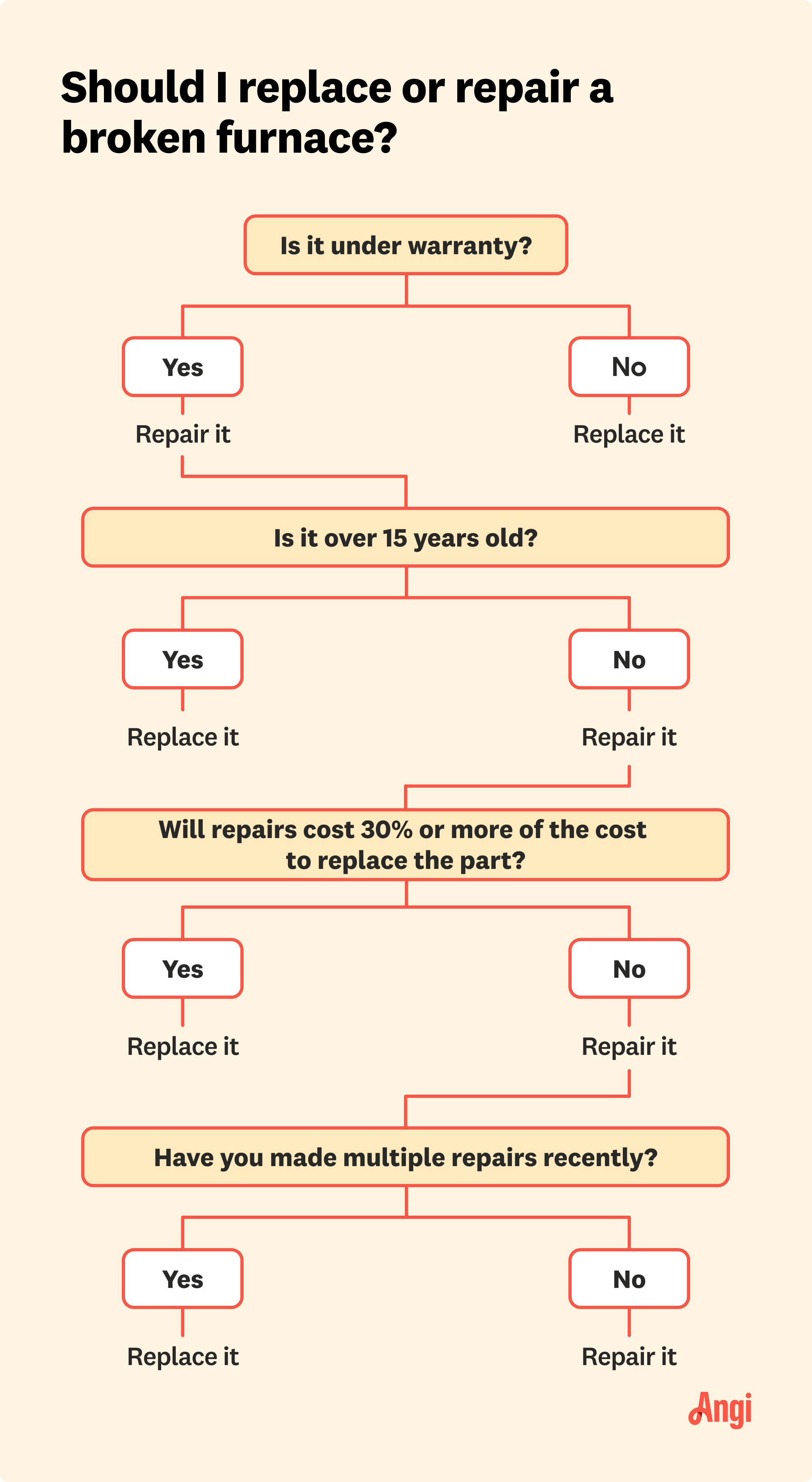
The average boiler installation cost depends on size, system type, and other factors. Keep reading to learn the cost of a new boiler in New York City.
A new furnace in Boston costs an average of $6,396, with a cost range of $3,730 to $9,077. Your HVAC tech will base your cost on your home size, the fuel type you have available, and efficiency needs.


Your home size and the fuel type you have to work with have the biggest effect on the cost of a new furnace in Boston.
It’s worthwhile to invest in a high-efficiency furnace to reduce heating costs through the long, frigid winters in Boston.
Natural gas is the most common fuel type in Boston, and a gas furnace is one of the most expensive to install.
An Energy Star-certified furnace may be eligible for up to a 30% tax credit, which can effectively save you an average of $1,918.
New furnace costs in Boston, Massachusetts average $6,396, and most residents pay between $3,730 and $9,077. Your total will depend on the size of your home, which affects the necessary heating capacity of your equipment, the type of fuel you’re using, and the efficiency of the furnace. You may need to budget an additional $60 to $300 to remove and haul away your old furnace.
You could pay as little as $1,000 or as much as $25,000 to install a new furnace in Boston. There are a few factors at play that will determine where your total falls within that range.
When you hire a furnace installer in Boston, they’ll start by assessing your heating needs, which depend largely on the size of your home. They’ll determine how many BTUs you need to heat your home sufficiently and maintain a comfortable and safe indoor temperature. Larger furnaces for bigger homes will drive up your material costs. The average home in Boston is 1,200 square feet and requires 60,000 to 72,000 BTUs, which is relatively high, due mostly to the long, cold winters.
The table below includes average sizes and prices for homes in Boston, but keep in mind that these don’t include installation labor. You should also always have a pro size your furnace for you. They’ll take other things into account, too, like general home efficiency, and they may recommend upsizing your system a bit for better performance and comfort.
| Home Size (sq. ft.) | BTUs Needed | Material Cost |
|---|---|---|
| 1,000 | 50,000–60,000 | $2,000–$2,400 |
| 1,200 | 60,000–72,000 | $2,400–$2,900 |
| 1,500 | 75,000–90,000 | $3,000–$3,600 |
| 2,000 | 100,000–120,000 | $4,000–$4,800 |
| 2,500 | 125,000–150,000 | $5,000–$6,000 |
Half of all homes in Boston are fitted with gas furnaces, which are some of the most expensive types of furnaces to install, but they’re more efficient and more affordable to run than oil-fired furnaces. Just over 20% use oil as a heating source, and just under 20% use electric furnaces. The type you choose will affect your material and labor costs, with oil furnaces costing the most and electric furnaces costing the least.
| Fuel Type | Cost Range | Pros | Cons |
|---|---|---|---|
| Electric | $2,700–$9,300 | Most sustainable | High running cost |
| Gas | $5,000–$13,300 | More efficient | No fuel storage |
| Oil | $9,000–$13,300 | Powerful heat generation | Less efficient |
Your material costs will also depend on the efficiency of the furnace you purchase. The annual fuel utilization efficiency (AFUE) measures the efficiency of your furnace. Furnaces with higher AFUE ratings will cost more upfront, but they can save you money on heating bills over time.
Furnaces with an AFUE rating of 90% or higher can be Energy Star-certified, which means they qualify for the 30% tax credit for Energy Star-rated furnaces offered by the federal government. Note that this is not a rebate, so availability depends on the income taxes you owe.
| AFUE Rating | Cost Range | After Tax Credit |
|---|---|---|
| 56%–70% (low) | $3,700–$5,000 | N/A |
| 80%–83% (mid) | $5,500–$8,000 | N/A |
| 90%–98.5% (high) | $7,000–$13,000 | $4,900–$9,100 |
Unless you’re installing a furnace in new construction, you’ll need to pay to have the old furnace disconnected and hauled away. This will add $60 to $300 to your total.
If you’re switching fuel sources, you may see other fees added to your total. The cost to cap a gas line, for example, is between $125 and $250.

Labor accounts for between $1,000 and $4,000 of your total when you install a new furnace in Boston. This is more than 50% higher than what you’d pay in most other areas due to the high cost of living in the city. Labor is expensive, but it’s not legal to DIY furnace replacement in Boston. Hiring an HVAC pro in Boston, Massachusetts, is always worthwhile to ensure a safe and legal installation, as well as a properly-sized furnace.
While your professional will pull the necessary permits for the work, you’ll also need to pay the associated permit fees. The City of Boston charges a $20 primary fee plus $0.09 per 1,000 BTUs. Given the average furnace size in the city, you’ll pay average permit fees of just $25.94.
Installing a new furnace will increase your home value, as it gives buyers peace of mind that they won’t experience outages or expensive repairs for decades after they close. The average ROI for a new furnace is 30%, which means a home value bump of close to $2,000 in Boston. Since the winters are so cold and heating outages can be dangerous, going with a high-end, high-efficiency furnace can add even more to your property value.

Home is the most important place on earth, which is why Angi has helped more than 150 million homeowners transform their houses into homes they adore. To help homeowners with their next project, Angi provides readers with the most accurate cost data and upholds strict editorial standards. We survey real Angi customers about their project costs to develop the pricing data you see, so you can make the best decisions for you and your home. We pair this data with research from reputable sources, including the U.S. Bureau of Labor Statistics, academic journals, market studies, and interviews with industry experts—all to ensure our prices reflect real-world projects.
Want to help us improve our cost data? Send us a recent project quote to [email protected]. Quotes and personal information will not be shared publicly.
From average costs to expert advice, get all the answers you need to get your job done.

The average boiler installation cost depends on size, system type, and other factors. Keep reading to learn the cost of a new boiler in New York City.

Discover the factors influencing air duct replacement cost in New York City. Learn how to save money and make an informed decision for your home's comfort.

Whole-house humidifier costs vary based on the type and size of the unit, along with other factors. The price might be worth it for people living in dry regions.

An HVAC zoning system makes your home more comfortable. Learn about installing a zone system, including HVAC zoning system costs and considerations.

Balancing your home’s radiators is a simple way to increase the efficiency and effectiveness of your HVAC system. Check out these 8 tips before you start.

Knowing when to replace your boiler will help you avoid last-minute emergencies in the middle of winter. Here are seven signs that you may need a brand-new unit.